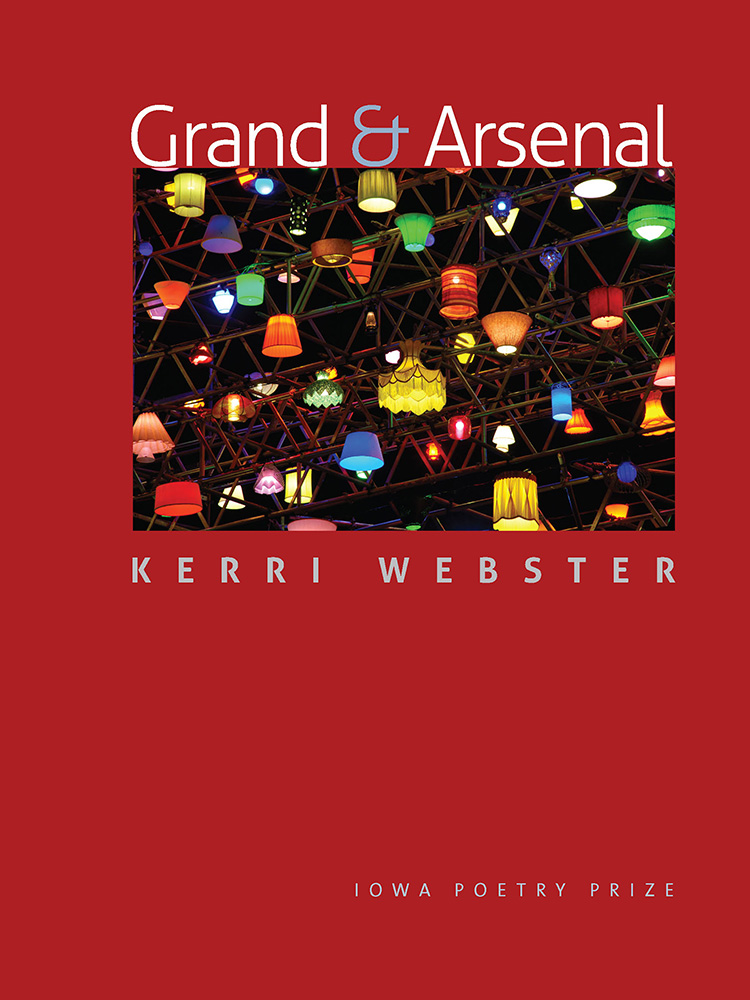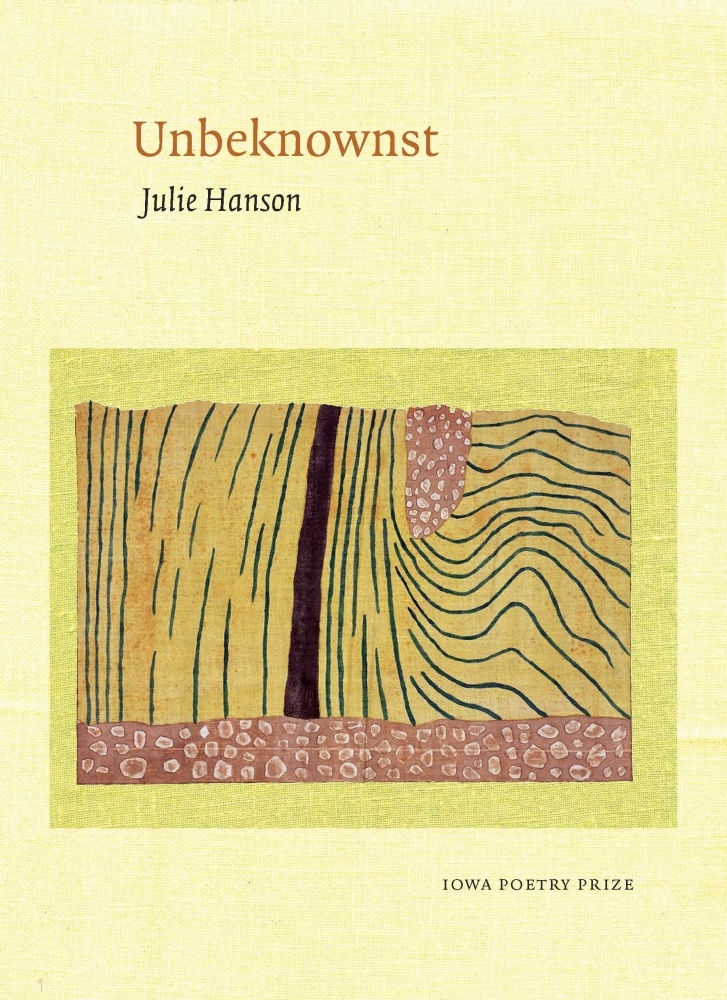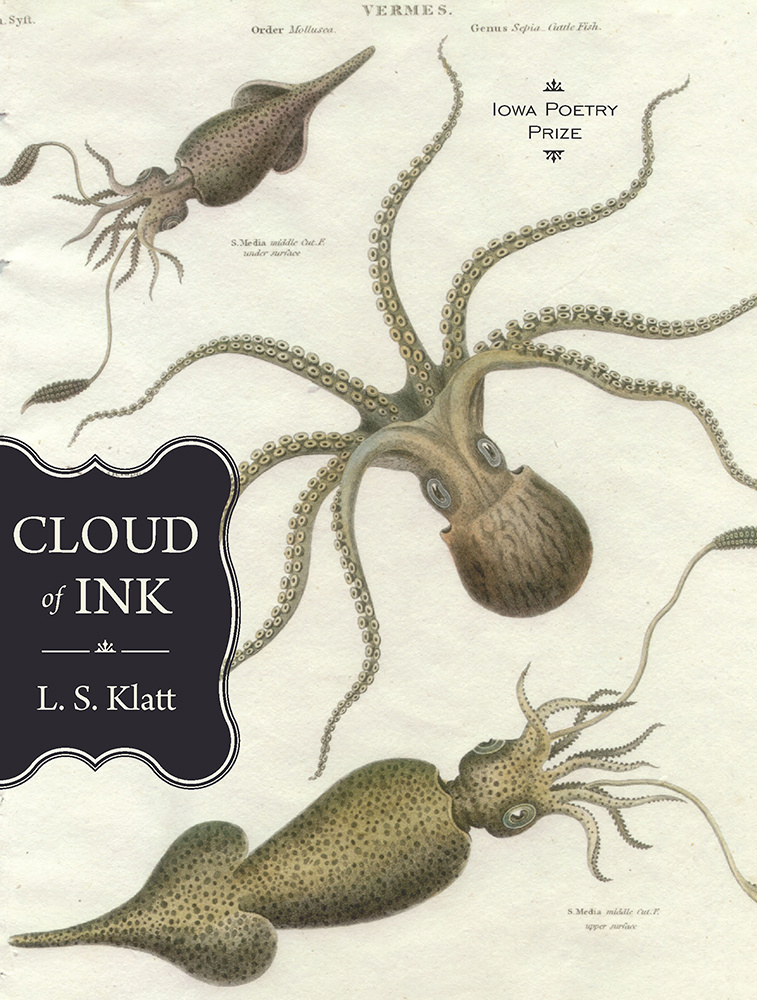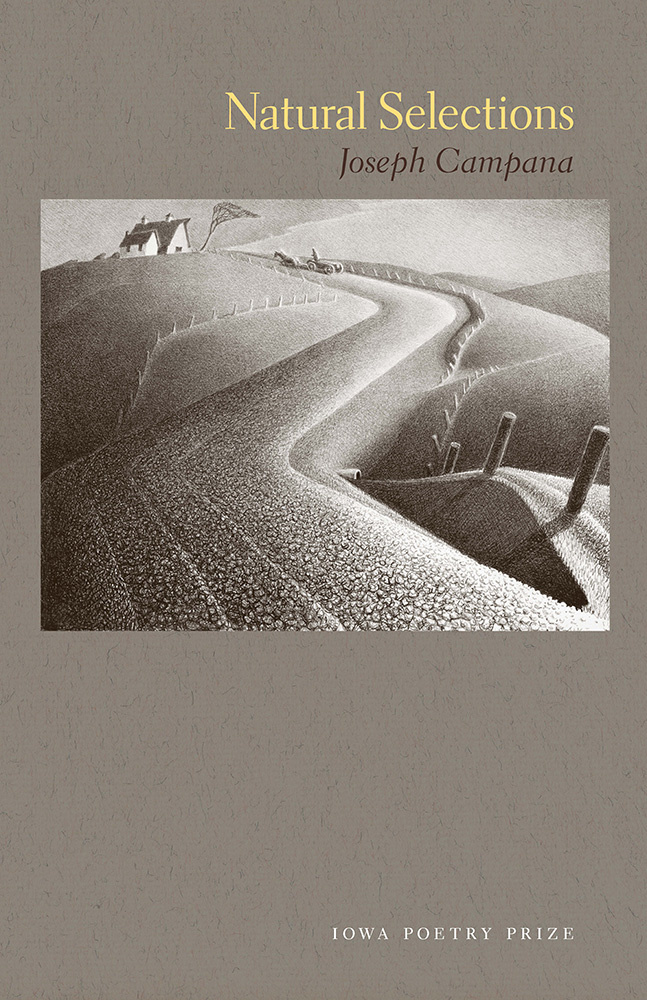From the intersection of public and private fear, Kerri Webster’s award-winning collection speaks of anxiety and awe, vanishings and reappearances. A city both rises and falls; worlds are simultaneously spoken into being and torn down by words. “This is how time sounds,” Webster writes; this is the hum and click of bodies “desirous of believing we’re all vehicle, every wet atom of us,” even as the saved seeds root in the fallen brickwork and the artifacts pile up: wisdom teeth, hummingbird skulls, plumb bobs, icons, antlers, incandescent bulbs.
Grand & Arsenal begins, “Bless me I am not myself,” but it is not long before the probability of being blessed is revealed to be as remote as the concept of a whole self. Thus begins the book’s defining struggle, enacted by a multitude of voices which move from rush to stumble and back again—meanwhile using all the tools we as a culture use to hold fear at arm’s length.
We hear a familiar irony, as in “On a trip West, porn in the hotel room. I can take or leave it. The climax that puts me in the seats? World’s end.” We hear humor, as in “I believed in . . . / . . . a certain apocalypse not so much foretold as crafted / by large-brained monkeys.” We hear understatement, as in “knowing it does not matter / in the grand—she would say scheme, I would say / mishap—.” Most important, though, these poems allow for the fleeting triumph of an undefended voice, which appears often to emerge tentatively from a sort of exhausted collapse.
“Kerri Webster’s voice is oracular, new, and legendary, full of land and weather. Grand & Arsenal rains forth like a liniment, painting the bald-faced human. Her penchant for opposites reminds us that difference is not a contrary thing but first cousin to who we are. When we read this new luminous voice we are led Upriver. This is Big poetry, a very special book where ‘the gods come down to the banks to drink.’”—Nikky Finney, author, Head Off & Split
“Grand & Arsenal offers up cabinets of curiosities: poems that gather unusual objects, places, remembered bodies—each weathered, handled roughly or gently, and as a result, replete with meaning, hot under the lights of Webster’s attention. The poems play chords on these kunsts, making mosaic landscapes of days or places—or emotions, which all of space is soaking in, if you think about it. This poetry is dark, tender, rather bitter, but I want to linger; it’s sequin-gorgeous in here.”—Catherine Wagner
Places I Haven't Slept
An island. The campground. In sixteen
states. At the sleep clinic, wanting
to strip the electrodes off
and glide home. Such feeble means: pill, wine, looped
sea sounds. In whatever bed
listening to breath, my body called
by what, jerking, muscles holding their animal
startle. By the Mississippi
in the house of sleeping women, barges
sliding past, my chest thick
with damp. The prophets thumbtacked to the walls
watching as I watched back.
2011 Iowa Poetry Prize



